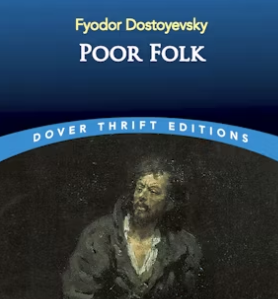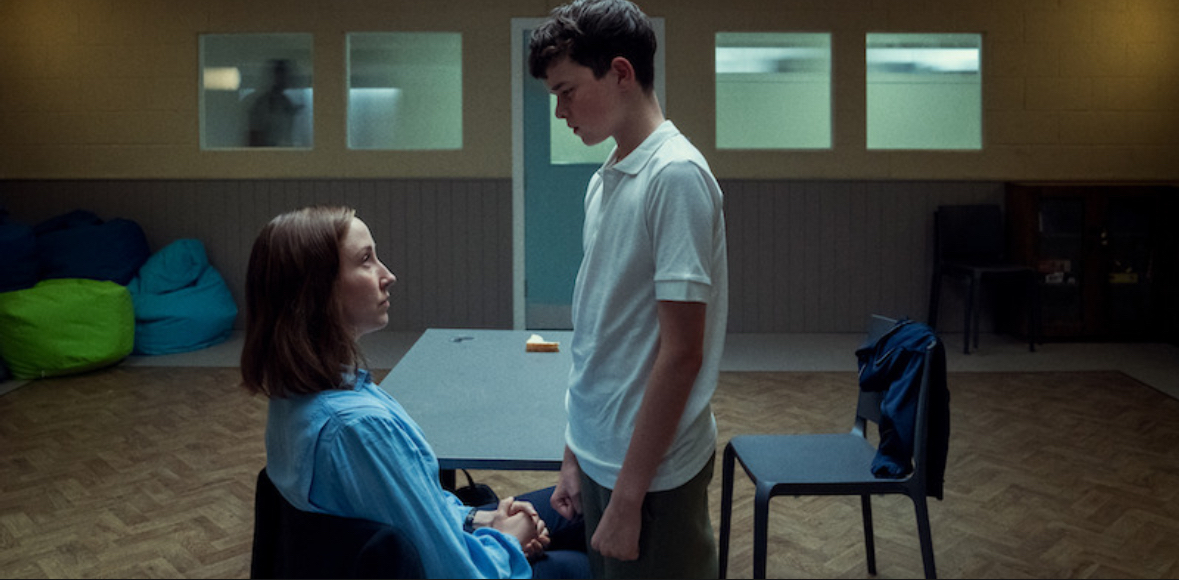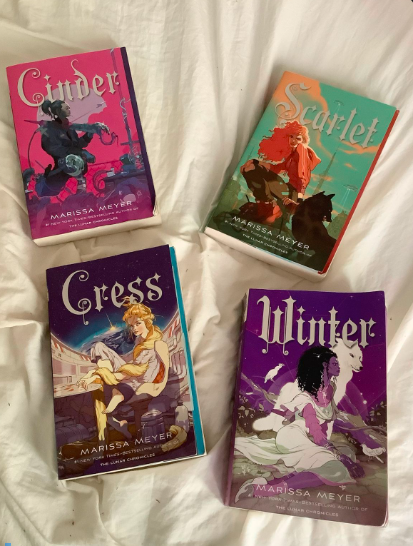
Poor Folk, Fyoder Doestoevsky’s touching debut novel, offers an intimate glimpse into the lives of the impoverished inhabitants of 19th-century St. Petersburg. Through the heartfelt correspondence between two main characters, Makar Davydoff and Varvara Petrovna, Dostoevsky crafts a narrative that is both hauntingly beautiful and deeply reminiscent. The novel not only shines a light on the struggles of the oppressed but also captures the resilience and compassion that can flourish in the face of difficulty.
Reading Poor Folk is an enlightening journey into the heart of human suffering — a journey that reveals the resilience and compassion that can thrive even in the darkest of times. Dostoevsky’s gift for character development shines as he brings Makar and Varvara to life. Their genuine experiences and the authenticity of their struggles make it impossible for readers to remain detached; we are drawn into their world, feeling their pain, hopes and dreams as if they were our own. One moment that really spoke to me is when Makar reflects on their existence, touchingly stating: “What a poor, poor life we lead! But let’s not lose heart; we still have our dreams, and dreams will always be with us.” This point captures the core theme of the novel — a powerful reminder that even amid despair, the human spirit can find comfort in dreams and the connections we build with one another.
The poetic text and vivid imagery further increases the emotional weight of the narrative. Dostoevsky does not only portray poverty; he critiques the societal indifference that allows it to flourish while simultaneously celebrating the shared bonds of humanity. The relationship between Makar and Varvara serves as a guiding light in their dreadful environment, stating the belief that mutual support, love and kindness can succeed over difficulty. Varvara’s moving observation that “In this world of grime, a little kindness is a ray of light; let us be that light for one another” resonated deeply with me. It grasps the essence of the human experience, that within the confusion and suffering, the smallest acts of kindness can illuminate our world and offer a sense of hope.
Poor Folk excels at revealing the complex interaction between despair and hope. Dostoevsky’s ability to portray the dignity of his characters, even as they navigate their continuous struggles compels us readers to reflect on our own humanity. The narrative invites us to consider the significance of empathy in a world that often seems indifferent to the difficulty of the voiceless. It challenges us to recognize our shared experiences and responsibilities towards one another. I found myself constantly reflecting on how the novel’s themes still resonate in today’s society, where issues of wealth inequality or inconsistency and social injustice continue to persist.
Although Poor Folk is a beautifully written novel, I do have some critiques that I would like to address. Some readers might find the pacing a bit uneven, as the emotional depth can sometimes give way to repetitive themes of suffering and longing. The characters, though deeply human, may occasionally feel like archetypes of poverty rather than fully realized individuals. The lack of a cohesive plot or clear resolution may leave some readers unsatisfied. The focus is more on character exploration than in a traditional narrative arc, which might not appeal to those used to action-driven stories. At times, the emotional weight of the characters’ situations can verge on melodramatic. Some readers may feel that the portrayal of suffering is overdone, which can take away from the overall impact of the story. Readers unfamiliar with 19th-century Russian society may find it challenging to fully appreciate the nuances of the characters’ struggles. A grasp of the historical and cultural context is beneficial for a deeper understanding of the text. As with many works in translation, some readers might encounter stylistic elements that feel dated or complex. The language reflects the time in which it was written, which may be off-putting to modern readers.
Overall, this novel stands as a remarkable and timeless exploration of the human condition. Despite occasional pacing issues and a tendency to lean towards standard characterization, the text’s insights into resilience, compassion and the enduring nature of hope remain relevant, making it not just a work of fiction but a mirror reflecting our moral responsibilities towards each other. Dostoevsky’s storytelling invites us to embrace empathy and to acknowledge the beauty of compassion that exists even amidst suffering. This novel, rich in emotional depth and heartfelt reflections, is a must-read for anyone seeking to understand the complexity of human emotions and the unbeatable spirit that resides within us all.




